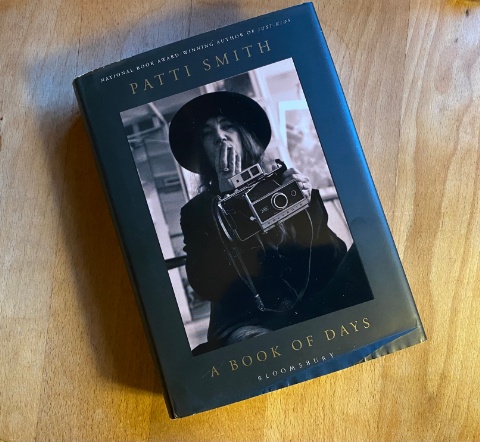Quote of the Day
“I asked why he was a priest and he said that if you have to work for anybody an absentee boss is best.”
- Janette Winterson
Musical alternative to the morning’s radio news
Toselli | Serenade | Indulis Suna (violin) & Ilga Suna (piano)
Pure schmaltz, but what the hell. It’s Wednesday.
Long Read of the Day
Critical Ignoring as a Core Competence for Digital Citizens
Many moons ago, Clay Shirky observed that “there is no such thing as information-overload; there is just filter failure”, which in a way was both profound and glib. Everyone who studies or works in the online world wrestles continually with the problem of filter design: how to craft or locate tools that help one to discover the good stuff and filter out the bad. And over time we have all built software ecosystems and workflows that help us to cope. This blog is the output of such a workflow; it’s the outcome of an ongoing struggle to decide what is interesting and potentially important, and what is unimportant and ephemeral — even if mainstream media and conventional wisdom are making a big deal of it at the time.
My discovery process has thrown up this interesting academic paper which happens to be available under Open Access arrangements (i.e. you don’t have to work in a university to access it for free). The core of its argument is that “digital environments present new challenges to people’s cognition and attention. People must therefore develop new mental habits, or retool those from other domains, to prevent merchants of low-quality information from hijacking their cognitive resources. One key such competence is the ability to deliberately and strategically ignore information”.
As important as the ability to think critically continues to be, we argue that it is insufficient to borrow the tools developed for offline environments and apply them to the digital world. When the world comes to people filtered through digital devices, there is no longer a need to decide what information to seek. Instead, the relentless stream of information has turned human attention into a scarce resource to be seized and exploited by advertisers and content providers. Investing effortful and conscious critical thinking in sources that should have been ignored in the first place means that one’s attention has already been expropriated (Caulfield, 2018). Digital literacy and critical thinking should therefore include a focus on the competence of critical ignoring: choosing what to ignore, learning how to resist low-quality and misleading but cognitively attractive information, and deciding where to invest one’s limited attentional capacities.
The paper goes on to suggest strategies for successful critical ignoring. None of them are, as the cliché goes, rocket science. Indeed, in a way, they are commonsensical. But we know how rare common sense can be.
Worth your time and — what’s more important, your attention.
Books, etc.
Patti Smith’s A Book of Days has arrived, and it’s lovely: 365 photographs, taking you through a single year, providing an intriguing dip into the stream of consciousness of a wonderfully creative artist. Of course I looked up my birthday to see what she was thinking of that day, and found a nice photograph of the young Nelson Mandela (with whom I share a birthday) as a boxer.
My Observer colleague, Kate Kellaway, had a great conversation with Smith, which is worth reading.
Dan O’Dowd and his campaign against Musk’s “Full Self Driving” fantasies
From the Washington Post…
O’Dowd, who made his fortune selling software to military customers, has been using the Tesla Model 3 to test and film the car’s self-driving software. He’s documented what appear to be examples of the car swerving across the centerline toward oncoming traffic, failing to slow down in a school zone and missing stop signs. This summer, he triggered an uproar by releasing a video showing his Tesla — allegedly in Full Self-Driving mode — mowing down child-size mannequins.
“If Tesla gets away with this and ships this product and I can’t convince the public that a self-driving car that drives like a drunken, suicidal 13-year-old shouldn’t be on the road, I’m going to fail,” O’Dowd said in an interview from his Santa Barbara office, where glass cases display his collection of ancient coins and auction-bought mementos from NASA moon missions.
O’Dowd has run nationwide TV ads with the videos and even launched an unsuccessful campaign for the U.S. Senate as part of his one-man crusade to challenge what he sees as the cavalier development of dangerous technology. For O’Dowd and other skeptics, the program is a deadly experiment foisted on an unsuspecting public — a view underscored by a recently filed class-action lawsuit and a reported Department of Justice investigation into the tech.
Despite O’Dowd’s high-profile campaign, and the concern from some regulators and politicians, Tesla is charging ahead with what it claims is world-changing technology. The company and its supporters argue their approach will help usher in a future in which death from human errors on roadways is eliminated. At the end of September, during a four-hour event in which Tesla showed off its latest artificial intelligence tech, Musk said Full Self-Driving is already saving lives and keeping it off public roads would be “morally wrong.”
The only way to interpret Musk’s obsession with ‘FSD’ is that it’s magical thinking — believing that something can be made real if you desire it enough.
Thanks to Charles Arthur (a fellow Tesla owner) for spotting it.
This Blog is also available as a daily email. If you think that might suit you better, why not subscribe? One email a day, Monday through Friday, delivered to your inbox. It’s free, and you can always unsubscribe if you conclude your inbox is full enough already!

